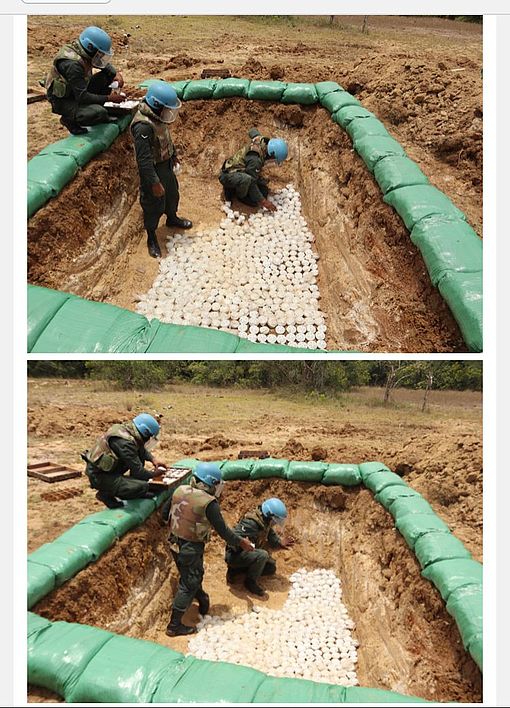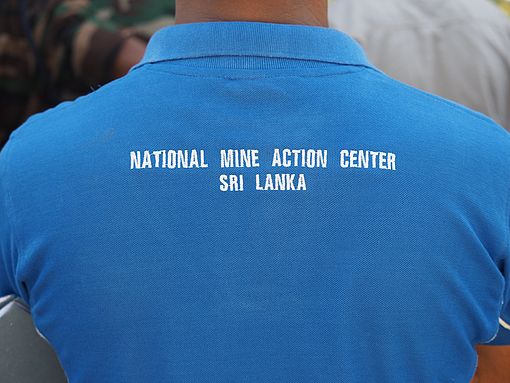Nearly 12 000 landmines destroyed by Sri Lanka under the Mine Ban Convention
Geneva, Colombo September 2021 –“Sri Lanka is pleased to confirm that the Humanitarian Demining Unit of the Sri Lanka Army has destroyed nearly 12,000 stockpiled anti-personnel mines almost a year earlier than the deadline set to us by the treaty that bans the production, use, stockpile, and transfer of these indiscriminate weapons”, announced officials at the National Mine Action Centre (NMAC) of Sri Lanka in a statement sent to the secretariat of the Anti-Personnel Mine Ban Convention. Also known as Ottawa Convention, the treaty unites over 80% of the world’s states and bans the use, stockpiling, production, and transfer of these weapons.
NMAC, which oversees planning, coordination, and implementation of Sri Lanka’s obligations under the Convention, indicated that the mines were destroyed at the end of the summer in the Kilinochchi District, in the Northern Province. “With this act, Sri Lanka signals to the world its steadfast commitment to eradicating this scourge in line with the ongoing endeavours for reconciliation and lasting peace. Our efforts towards clearing all known mined areas will continue in partnership with international allies to reach the target of a mine-free Sri Lanka”, NMAC officials added.
Sri Lanka is one of a handful of countries in South Asia that have adhered to the international treaty, doing so in 2017. Since then, the country has led efforts in promoting the Convention and its norms in the region.
The Netherlands in its role as President of the Convention, warmly welcomed Sri Lanka’s contribution to the global efforts to eradicate an insidious weapon that has contaminated more than 70 countries.
“With over 54 million anti-personnel mines destroyed in the past two decades by the Parties to this historic treaty, we can unequivocally say that the destruction of dangerous stockpiles has been one of our greatest successes”, said the Ambassador of the Netherlands to the Conference on Disarmament H.E. Robbert Gabrielse who presides over the Convention. “We salute Sri Lanka, as one of the youngest members of our Convention, for leading efforts to promote treaty norms, and seeking to ensure the safety of at-risk populations”, said the Ambassador.
Sri Lanka is expected to present more information and table a formal Declaration during the upcoming (Nineteenth) Meeting of the States Parties to take place in The Hague, Netherlands from 15-19 November.
“The international community is committed to supporting Sri Lanka as it continues its task to clear contaminated lands and meet the needs of all mine victims”, concluded the Dutch Ambassador.
Editorial note: The Convention was adopted and signed in 1997, and entered into force on 1 March 1999. Over 80% of the countries in the world, or 164 States Parties have joined this landmark treaty; together these countries have destroyed nearly 54 million stockpiled anti-personnel mines and released millions of square meters of land once contaminated. The Convention was the first multilateral instrument to take into consideration the rights of the victims and has contributed to improving the lives of many mine victims across the world. The Convention’s norms are almost universally respected by the few states that remain outside the treaty; landmine use remains largely confined to armed non-state actors.



